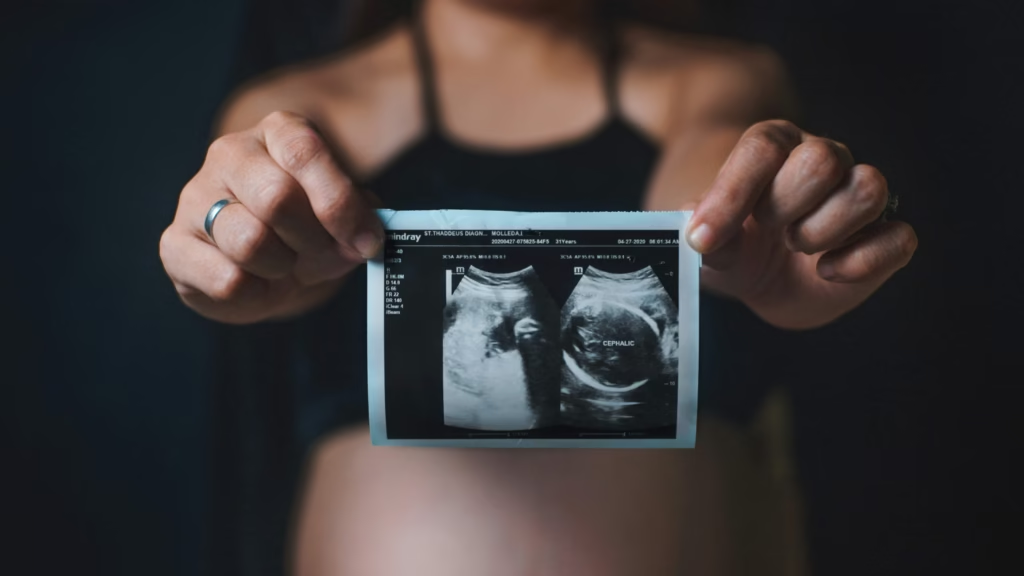Becoming an egg donor is a journey of kindness that can change lives. If you’re thinking about egg donation, knowing the requirements is key. The world of egg donation has changed, with more detailed criteria for donors in 2025.
Egg donor Requirements cover a lot and aim for the best health and genetic checks. Clinics in the U.S. look at donors in many ways. They check your physical, medical, and mental health.
To start as an egg donor, you need to meet certain criteria. These rules help keep donors and recipients safe. They make sure this act of kindness is both safe and supportive.
Key Takeaways
- Egg donor requirements are detailed and well-planned
- Many checks are done to find the right donors
- Your health, both physical and mental, matters a lot
- Donors are key in helping families achieve their dreams
- Each clinic might have its own specific needs
Understanding Egg Donation: A Life-Changing Decision
Egg donation is a chance to help people who struggle to have kids. By donating eggs, you give hope to those who dream of starting a family but face big challenges.
The egg donation journey is personal and changes lives. It’s for those who want to make a big difference in someone’s life through a special medical process.
The Impact of Egg Donation on Recipients
Donated eggs bring big emotional and medical benefits to recipients:
- Opportunity to experience pregnancy
- Chance to have biological children
- Overcoming complex fertility challenges
“Egg donation provides a beacon of hope for individuals facing reproductive difficulties.” – Fertility Specialist
What to Expect as an Egg Donor
To become an egg donor you must met the egg donor requirements first and during egg donor screening, you’ll get a full medical check-up. This ensures you’re a good match. The steps include:
- Initial medical consultation
- Genetic health assessment
- Psychological evaluation
- Physical examination
| Screening Stage | Purpose | Duration |
|---|---|---|
| Medical History Review | Assess genetic health | 1-2 weeks |
| Physical Examination | Confirm reproductive health | 1 day |
| Psychological Assessment | Evaluate emotional readiness | 2-3 sessions |
Being an egg donor is a compassionate decision. It’s about thinking deeply about your physical, emotional, and ethical well-being. Your chance to help create families makes this journey truly special.
Basic Egg Donor Requirements You Need to Know
Becoming an egg donor means you must meet certain egg donor requirements eligibility criteria. These ensure the health and success of the donation. It’s important to know these requirements before starting.
Potential egg donors need to meet several egg donor requirements. These rules protect both the donor and the recipients.
- Age range typically between 21-35 years old
- Physical health and normal reproductive function
- No significant medical history complications
- Stable psychological health
- Non-smoker with healthy lifestyle
The screening for egg donation is thorough. It checks many aspects of your health and background.
| Requirement Category | Key Criteria |
|---|---|
| Physical Health | BMI between 18-28, regular menstrual cycles |
| Medical History | No hereditary genetic disorders |
| Lifestyle | No drug use, limited alcohol consumption |
Each fertility clinic may have slightly different specific requirements, so it’s essential to check with individual programs.
“Egg donation is a generous gift that requires careful consideration and meeting specific health standards.” – Reproductive Health Expert
Your dedication to these requirements shows you’re ready to make a big difference in someone’s life.
Age and Physical Health Criteria for Egg Donors
Becoming an egg donor means meeting certain health standards. These standards help ensure the donation process is safe and successful. It’s important for those who want to help others build their families.
Your physical health is key in egg donation. Fertility clinics have strict guidelines. These guidelines protect both the donor and the recipients.
Optimal Age Range for Donation (age egg donor requirements )
The best age for egg donors is between 21 and 32. This age range offers several benefits:
- Peak reproductive health
- High-quality egg production
- Optimal genetic screening
- Increased chance of successful fertilization
BMI and Physical Health Standards
Keeping a healthy BMI is vital for egg donation. Most clinics look for a BMI between 19 and 29. This supports:
- Hormonal balance
- Reproductive system health
- Successful egg retrieval outcomes
Genetic Health Considerations (genetic egg donor requirements )
Genetic screening is a big part of egg donor qualifications. Clinics do detailed genetic tests. They look for any hereditary conditions.
| Genetic Screening Focus | Purpose |
|---|---|
| Chromosomal Analysis | Detect genetic abnormalities |
| Inherited Disease Testing | Find carrier status for genetic conditions |
| Family Medical History | Check for genetic risks |
“Your physical health is the foundation of successful egg donation.” – Reproductive Health Experts
Each egg donation criteria is set to ensure the best results. By meeting these strict health standards, you can help families achieve their dream of parenthood.
Medical History and Genetic Screening Process
Egg donor screening is a detailed medical check to ensure top reproductive health. Your medical history is key in deciding if you can be an egg donor. It’s not just simple medical tests. It also looks into your genetic background.
When you’re assessed for egg donor requirements, you’ll go through a detailed genetic screening. This includes:
- Detailed family medical history review
- Comprehensive genetic disorder testing
- Chromosomal analysis
- Specific genetic mutation screenings
Genetic screening finds inherited conditions that could affect future children. Your full medical history is vital for recipients looking for healthy genetic contributions.
“Thorough medical screening protects both donors and future parents” – Reproductive Health Experts
The screening involves several tests:
- Blood tests to check hormone levels
- Genetic carrier screenings
- Infectious disease panels
- Comprehensive physical examination
Genetic counselors and reproductive specialists review your medical history. They check for a clean medical record, low genetic risk, and good reproductive health.
Psychological Evaluation and Mental Health egg donor requirements
The egg donor screening process includes a detailed psychological check. It makes sure you’re emotionally ready and mentally healthy. This part of the check is as important as checking your physical health.
Mental health is a big part of being a good egg donor. Clinics do deep psychological tests. They do this to keep you and the people who might get your eggs safe.
Emotional Readiness Assessment
Being emotionally ready is essential for egg donation. The check usually includes:
- In-depth psychological interviews
- Mental health questionnaires
- Evaluation of stress management skills
- Understanding of emotional implications
Family History Screening
Looking at your family’s mental health is important. Experts will look at:
- Family mental health history
- Presence of genetic mental health conditions
- Potential hereditary psychological risks
Support System Evaluation
Your personal support network matters significantly. Counselors will check:
- Strength of personal relationships
- Emotional support mechanisms
- Ability to handle possible psychological challenges
“Psychological readiness is as important as physical health in egg donation.” – Fertility Experts
The aim is to make sure you’re emotionally strong for this big change. It’s all about keeping your mental health safe during the process.
Lifestyle and Personal Background Checks
When you choose to be an egg donor, your personal background is key. Clinics do deep background checks. They make sure donors are eligible and safe for recipients.
The screening for egg donor requirements looks at several important areas:
- Substance use history and current status
- Criminal background verification
- Personal lifestyle assessment
- Social behavior and stability evaluation
Clinics seek donors who show:
- Consistent personal responsibility
- Stable living environment
- Healthy lifestyle choices
- Reliable personal history
“Your personal background is as important as your medical history in the egg donation process.”
Background checks include detailed interviews, document checks, and references. The aim is to uphold the highest ethical and medical standards.
As an egg donor, you’ll face a detailed review of your personal history. This ensures a safe and responsible donation for everyone involved.
Educational and Professional Egg Donor Requirements
Your education and work history are key when looking at egg donor requirements. Egg donation agencies look for candidates with varied backgrounds. They want to see signs of intelligence and stability.
- Minimum educational attainment of a high school diploma
- Preference for candidates pursuing or holding college degrees
- Strong academic performance and achievements
- Demonstrated professional commitment
Academic Background Preferences
Many people looking for donors want those with good education. While a specific degree isn’t needed, agencies like candidates with:
- Undergraduate or graduate-level education
- Competitive academic records
- Areas of study in science, technology, healthcare, or other specialized fields
Career Impact Considerations
Your job history is important in the egg donation process. Agencies look at how stable your job is and if you can donate without problems.
“The right candidate demonstrates both academic and professional reliability.” – Fertility Expert
| Educational Level | Typical Preference | Additional Considerations |
|---|---|---|
| High School | Minimum Requirement | Strong academic record preferred |
| College | Strongly Preferred | Ongoing or completed degree |
| Advanced Degree | Highly Attractive | Additional screening opportunities |
Knowing these requirements helps you make a strong profile. Your education and work experience could make you a top choice.
The Complete Egg Donor Screening Process
Understanding the egg donor requirements and screening process can be tough. But knowing each step helps you feel more ready. The process checks many things to make sure donors are healthy and a good match.
It starts with an application that looks at your basic info and health. Clinics look at many things to see if you can be a donor.
- Initial online application submission
- Preliminary medical questionnaire
- Background and genetic history review
- Health records examination
The screening process has several important parts:
- Comprehensive medical screening
- Genetic testing
- Psychological evaluation
- Physical examination
| Screening Stage | Purpose | Duration |
|---|---|---|
| Medical History Review | Assess genetic and health risks | 1-2 weeks |
| Physical Examination | Verify reproductive health | 1 day |
| Genetic Screening | Identify possible inherited conditions | 2-3 weeks |
| Psychological Assessment | Evaluate emotional readiness | 1-2 weeks |
Pro tip: Prepare detailed medical records and be open during screenings to make the process smoother.
“The screening process protects both donors and recipients by ensuring the highest standards of reproductive health.” – Dr. Emily Rodriguez, Reproductive Medicine Specialist
Every step of screening is important to find the best donors. Your patience and help are essential for a successful egg donation journey.
Compensation and Legal Considerations for Egg Donors
Even if you met the egg donor requirements when you decide to become an egg donor, it’s important to know about the money and laws involved. This journey is more than just medical tests. It’s a well-regulated process with clear money rules and legal protections.
Many egg donors wonder about the money and legal stuff. The rules include fair pay for your big help in making families.
Payment Structure for Egg Donors
How much egg donors get paid depends on a few things:
- First-time donors: $5,000 – $7,000
- Experienced donors: $7,000 – $10,000
- Donors with exceptional qualities: Up to $15,000
Legal Rights and Protections
As an egg donor, you get legal help to keep you safe. These laws make sure:
- Everything stays private
- You won’t have to be a parent later
- Agreements are clear and fair
| Legal Aspect | Donor Protection |
|---|---|
| Medical Consent | Comprehensive informed consent documentation |
| Financial Agreement | Clear compensation terms before procedure |
| Genetic Privacy | Strict confidentiality agreements |
Always talk to a lawyer who knows about reproductive law to know your rights and duties.
“Egg donation is a profound act of generosity that requires complete legal and financial knowledge.” – Reproductive Health Expert
Steps to Begin Your Egg Donor Journey
Choosing to become an egg donor is a big step. It needs careful thought and preparation. The application process has key steps to make sure you’re ready for this journey and meeting the egg donor requirements.
Start by looking into reputable egg donation agencies. Find ones with clear processes and good support. Check their credentials and read what past donors say.
- Research multiple egg donation agencies
- Check agency credentials and donor experiences
- Understand the complete egg donor screening process
Next, collect important personal and medical info. This includes:
- Medical history records
- Genetic screening information
- Personal identification documents
- Academic and professional background details
“Preparation is key to successfully navigating the egg donor application process.”
Then, set up meetings with agencies. These talks show what’s involved and if you fit their program. Ask about pay, medical steps, and emotional aspects.
Being an egg donor is more than a medical act. It’s a chance to help those facing fertility issues. Go into it with kindness, thorough research, and a clear reason for your choice.
Conclusion
Choosing to be an egg donor is a big and life-changing step. You have the chance to help people and families who are struggling with fertility. It’s important to know the egg donor requirements and check if you qualify.
The journey to become an egg donor includes many tests. These tests check your health, mind, and genes. They make sure you and the person getting your eggs are safe. Your kindness can help create families and give hope to those who want to be parents.
Think carefully about the emotional and physical effort needed. Look for good fertility clinics and talk to experts. Sharing your decision with loved ones can also help. Your choice shows great empathy and generosity, changing lives in ways you might not even understand.
Not everyone can be an egg donor due to egg donor requirements, and that’s okay. The strict tests are there to protect everyone. If you meet the egg donor requirements and ready, you could be the special person someone has been waiting for.
Frequently Asked Questions
What are the basic age egg donor requirements for becoming an egg donor?
Egg donation agencies usually look for donors aged 21 to 32. This age ensures you’re at your best fertility and health. Some agencies might have a bit of wiggle room, but this range is the main focus.
Do I need to have completed a college degree to be an egg donor?
A college degree is not a must, but it’s often preferred. Your education can help you stand out, but it’s not the only thing that matters. Your health, medical history, and meeting basic criteria are more important.
What medical conditions might disqualify me from egg donation?
Certain health issues can stop you from donating eggs. These include genetic disorders, chronic illnesses, STIs, and serious mental health problems. A detailed health check will see if you’re eligible.
How long does the entire egg donor screening process take?
The whole process usually takes 2-3 months. It includes filling out an application, medical checks, genetic tests, psychological assessments, and matching with recipients.
What lifestyle factors might impact my egg donor eligibility?
Your lifestyle choices can affect your eligibility. Smoking, drinking too much, drug use, and risky sexual behaviors are big no-nos. Agencies want donors who live healthy, responsible lives.
What genetic screenings are part of the egg donor process?
The screenings check for genetic disorders, chromosomal issues, and carrier status. They also review your family’s medical history. These tests ensure the health of any future children.
Can I donate eggs if I have a history of mental health treatment?
It depends on your condition and current health. Stable mental health and well-managed conditions might not disqualify you. Each case is judged during the psychological assessment.







